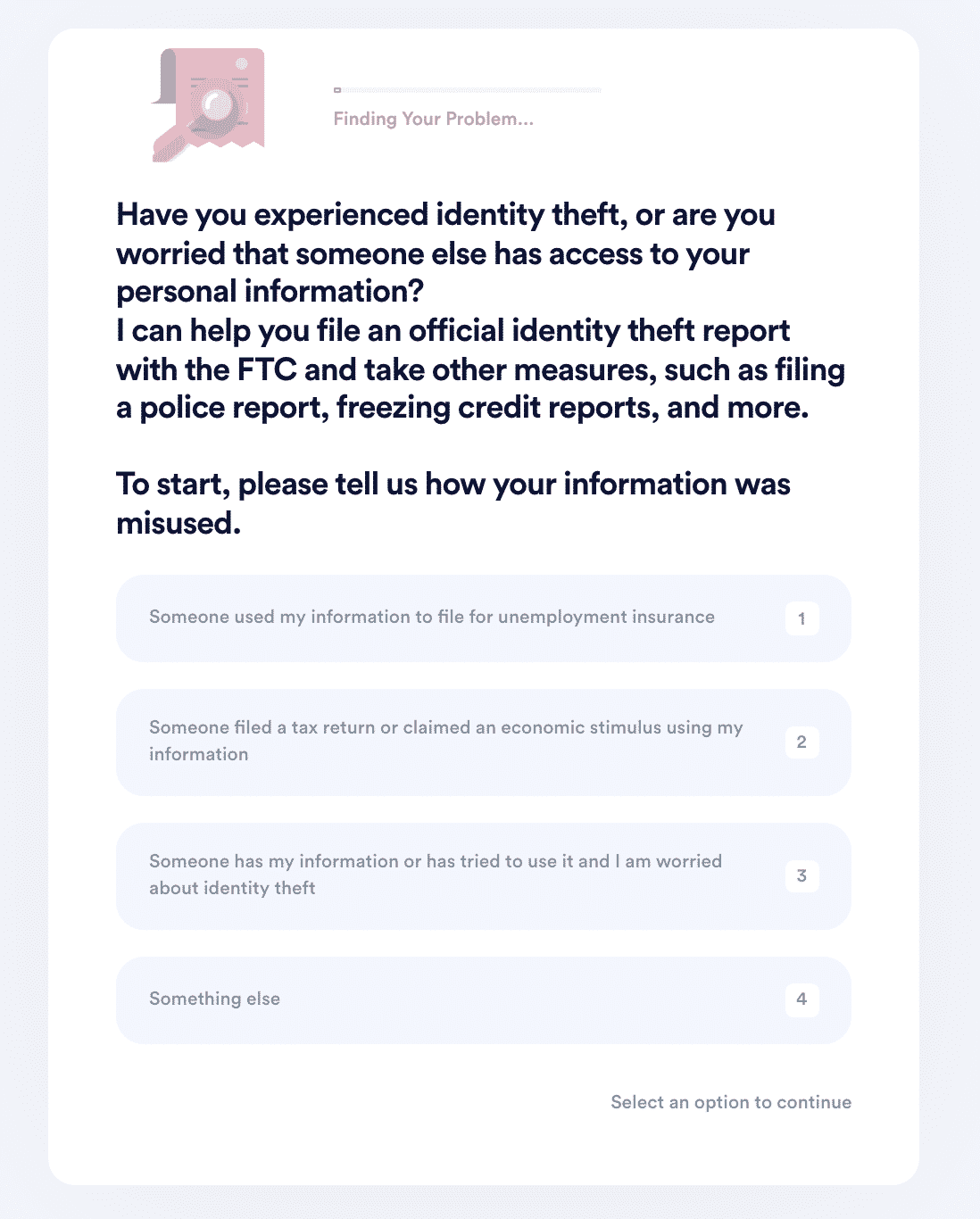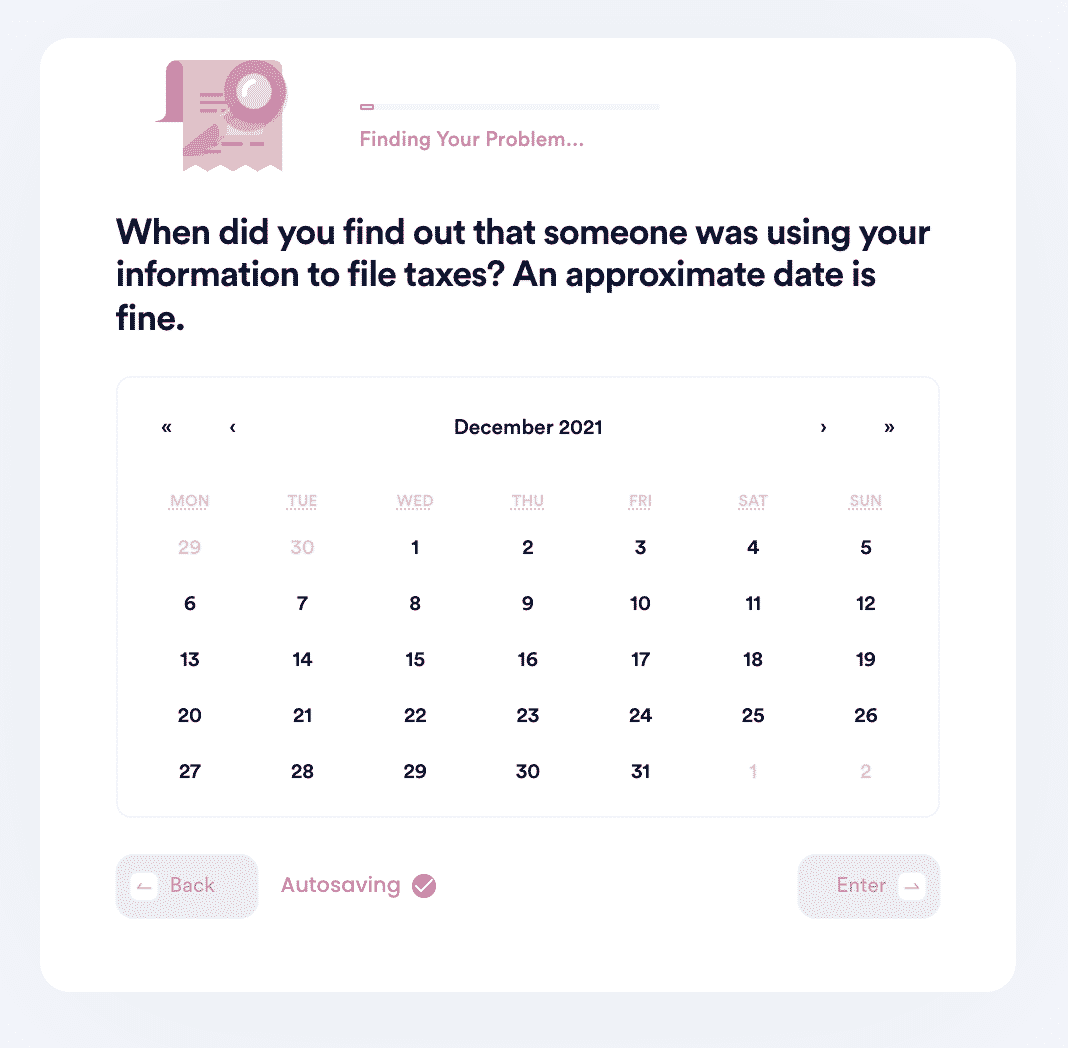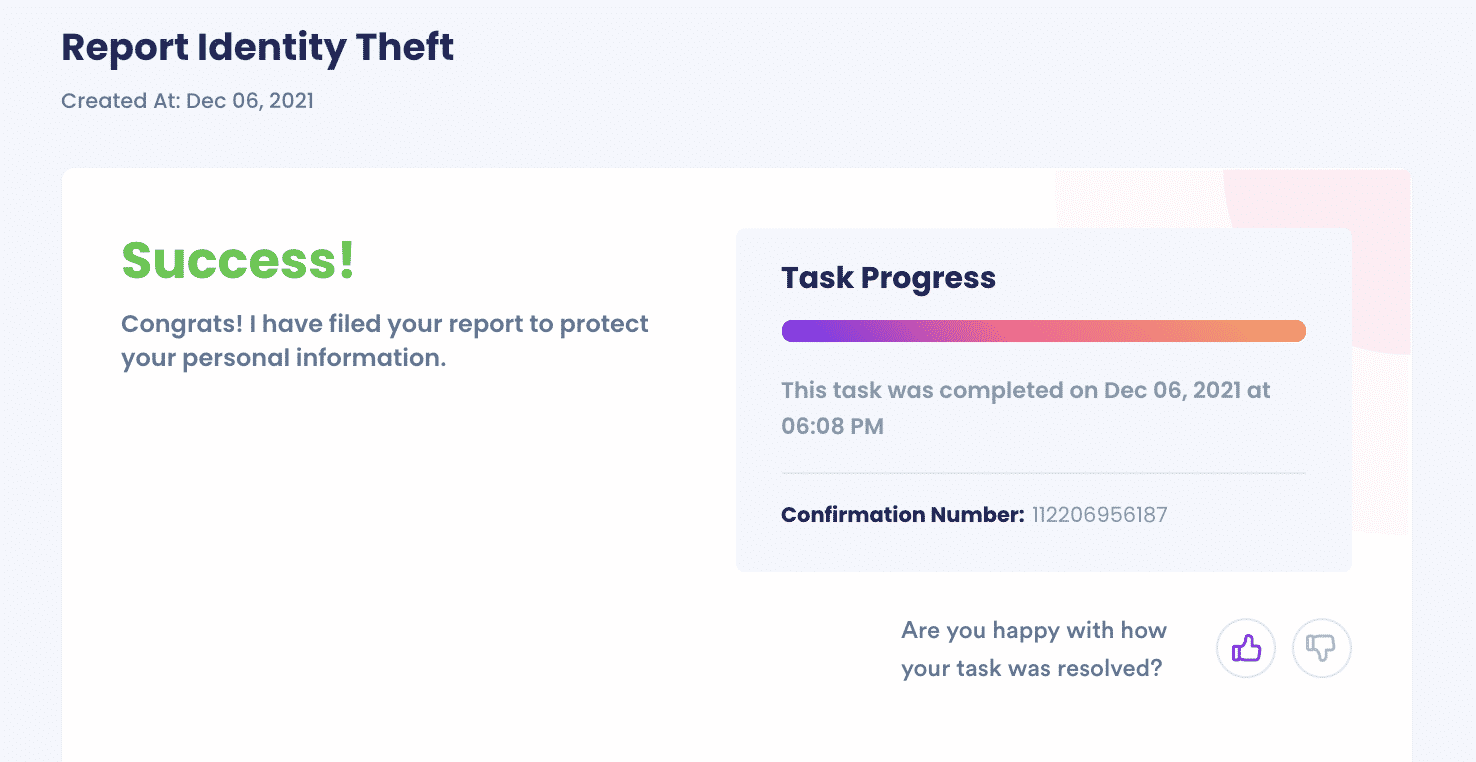All About Reporting Bank Account Fraud—When, Where, and How
Like identity theft, bank fraud is a rampant issue that most Americans have to deal with. According to the FTC, most bank fraud victims are young adults in their early twenties. In addition, the most common bank fraud is fake checks.
About 50% of these fake check bank frauds involve a job offer or a money-making scheme. So, it's easy to see why people in their twenties fall for bank fraud schemes. Most people are usually either desperate for jobs or a way to earn cash.
The process of only makes it more stressful and lengthy for the victims. However, DoNotPay can help you speed up the process of reporting and claiming bank fraud reimbursement.
What is Bank Account Fraud?
Bank account fraud occurs when someone uses illegal means to access your account assets. These frauds can happen if someone gains access to your personal information such as pins, debit card numbers, and other bank account information.
Most of the time, scammers get access to your bank information through online phishing, skimming, stealing debit and credit cards, or company data breaches.
There are many types of bank account fraud, but here are the most common ones:
| Cheque fraud | In this case, scammers can use counterfeit checks to withdraw money from your account. They can also forge a legitimate check with a false signature. |
| APP scams | In this type of fraud, a victim willingly transfers their funds to the scammer. The trickster approaches under the pretense of a company data breach to convince a victim to give out their pin or some other sensitive information. |
| Card not received | This fraud happens when your bank sends out a new card, but it's intercepted along the way. The scammer then uses your card to make purchases and withdrawals from your account. |
| Phone bank fraud | Here, an imposter pretends to call from a bank requesting personal information such as pins and account details. |
| Business Email Compromise | This fraud happens when a person impersonates a senior management member to coerce you into making payments or disclosing your account details. |
| Invoice fraud | For this bank fraud, scammers impersonate a supplier and request you to update bank account information which they then use for bank fraud |
Signs That You May Be A Victim of Bank Account Fraud
You may be a victim of bank account fraud. Watch out for the following signs:
- Withdrawals from your bank account that you can't account for
- You stop receiving bills or receive calls and emails from bill collectors for late bill payments
- Additional medical expenses charged to your account or denial of medical benefits on account that you already claimed the benefits
- Notification by IRS that you filed for multiple tax returns
- Your bank account reports don't align with your account balance
What Should You Do If You Experience Bank Account Fraud?
Here are the steps to take if you find out you are a victim of bank account fraud:
- Notify Your Bank.
This ensures that your bank takes extra verification steps for automatic withdrawals from your account. It will also help protect you from liability when reported early. In fact, the longer you wait to report to your bank about bank fraud, the higher the chances of being liable.
For instance, if you report a bank fraud before any unauthorized charges are made, you shall not experience any loss. If you report within two days of learning about the bank fraud, you shall be liable for not more than the first $50. However, reporting a bank fraud more than 2 days after it happens may see you losing $500.
- Change Your Passwords Once bank account fraud occurs, there's a possibility of it happening again. Make sure to change your passwords on all your financial accounts that have been affected. You want to use different passwords for each of your accounts to minimize the chances of an imposter accessing them.
How to Prevent Bank Account Fraud
It pays to be careful, especially when it comes to your personal and financial information. Here are some tips on how to prevent bank account fraud:
- Never accept checks from people or businesses you don't recognize. The checks may be forged or altered, which can lead to heavy losses should you try to cash them.
- Report stolen checks immediately. This ensures that the bank blocks the payments should someone try to use the check.
- Install a locked mailbox in your residence. A locked mailbox lowers the chances of someone accessing your mail and using your information for fraud.
- Report suspicious calls to your bank. If you constantly receive calls promising rewards or someone masquerading as your bank, make sure to notify the bank so they can look into it.
- Never give your information over the telephone. Banks never ask for personal information like social security details or account passwords over email and telephone.
- Dispose your receipts correctly. Most people throw their Debit and ATM receipts in trash cans where scam artists can easily retrieve them. Instead, store your receipts safely or shred them before disposal.
How to Report Bank Account Fraud By Yourself
You can report bank account fraud by following the steps outlined below:
- Collect all the information you can, including names used by scammers, emails addresses, emails exchanged, dates you noticed fraudulent activity in your account, phone numbers used, records of all payments used, and your bank account numbers.
- Notify your bank through a fraud unit phone number or customer service number. Make sure to follow up the call with a written record of what you reported, the information and document provided, and the bank's response.
- Request your debit card and account to be frozen to prevent further losses.
- File a report with the FTC, and make sure to attach all documented evidence.
- If identity theft was involved in the fraud, file a police report. This will help you make a case should an imposter use your information for criminal activity.
If you receive a fake check, make sure to report the check through the mail to the US postal inspection service and report all counterfeit checks to the FTC. You can do this on their website or by phone on 1-877-382-4357. If scammers accessed your account online through phishing, forward the emails to the Anti-phishing Working Group.
What to Do if You've Had Your Identity Stolen in Bank Account Fraud
As soon as you detect that you've had your identity stolen in bank account fraud, you must be proactive and take these steps:
- Notify affected banking institutions of the event.
- Cancel accounts that have been compromised.
- Report bank account fraud to the proper authorities.
- Ensure computer antivirus software is up-to-date.
- Set up a credit monitoring service and consider freezing your credit.
The quicker you accomplish these steps, the quicker you will be able to move past your negative bank account fraud experience and get back control of your finances.
Here's How DoNotPay Makes it Easy to Report a Bank Account Fraud
As you can see, there's a lot of documentation and communication required to report a bank account fraud. Here's where DoNotPay comes in to simplify the process. All you need to do is fill in as much information as possible about the fraud, and we deal with the rest.
We can help you determine if you need to make an FTC report, alert state agencies, or contact the IRS. We also make it super fast and easy to write letters and contact banks after a fraud incident. The whole process is online and automated, so you can say goodbye to long wait times synonymous with reporting bank frauds or seeking compensation after a fraud.
Follow these 3 simple steps and you'll be done with .
- Search "identity theft" on DoNotPay and select the type of incident you would like to report.

- Tell us more about the incident that occurred, including the location, date, time, financial loss, and any suspect information you may have.

- We'll identify whether you should file an FTC report, contact the IRS, freeze your credit report, contact state agencies, or file a police report. Once we guide you through the best options, we'll automatically submit the reports on your behalf!

If a company or government agency needs more information after you have filed a report, they will reach you through your mail or email.
What Else Can DoNotPay Do?
DoNotPay can help you get issues resolved quickly. We can get you government representative contacts, help you file small court claims, ask for chargebacks and refunds, or claim your victim of crime compensations.
Sign up today!


